Positive welfare
3 min read
Positive welfare is a way of thinking about animal wellbeing that’s not just about avoiding suffering but about creating opportunities for cows to experience positive emotions, express natural behaviours, and live a good life. Cows are sentient animals. They feel things, from comfort and pleasure to pain and fear. Knowing this gives us a responsibility to move beyond simply meeting their basic needs to actively support their wellbeing.
The NZ Animal Welfare Act 1999 recognises animals as sentient, meaning they can experience both positive and negative emotions. This legal recognition underpins the importance of positive welfare.
Dairy cows can feel comfort and contentment as well as pain or fear. They are intelligent and social animals; they can learn, remember, make decisions, recognise humans and other cows and form strong bonds with herd mates.
Understanding this helps us support their wellbeing by providing positive experiences and minimising negative experiences. Supporting a good life means not only promoting positive experiences but also minimising negative experiences.
Ensuring high standards of care, preventing health problems, providing good nutrition, and handling animals calmly all help cows feel content and able to engage in behaviours that support their wellbeing.
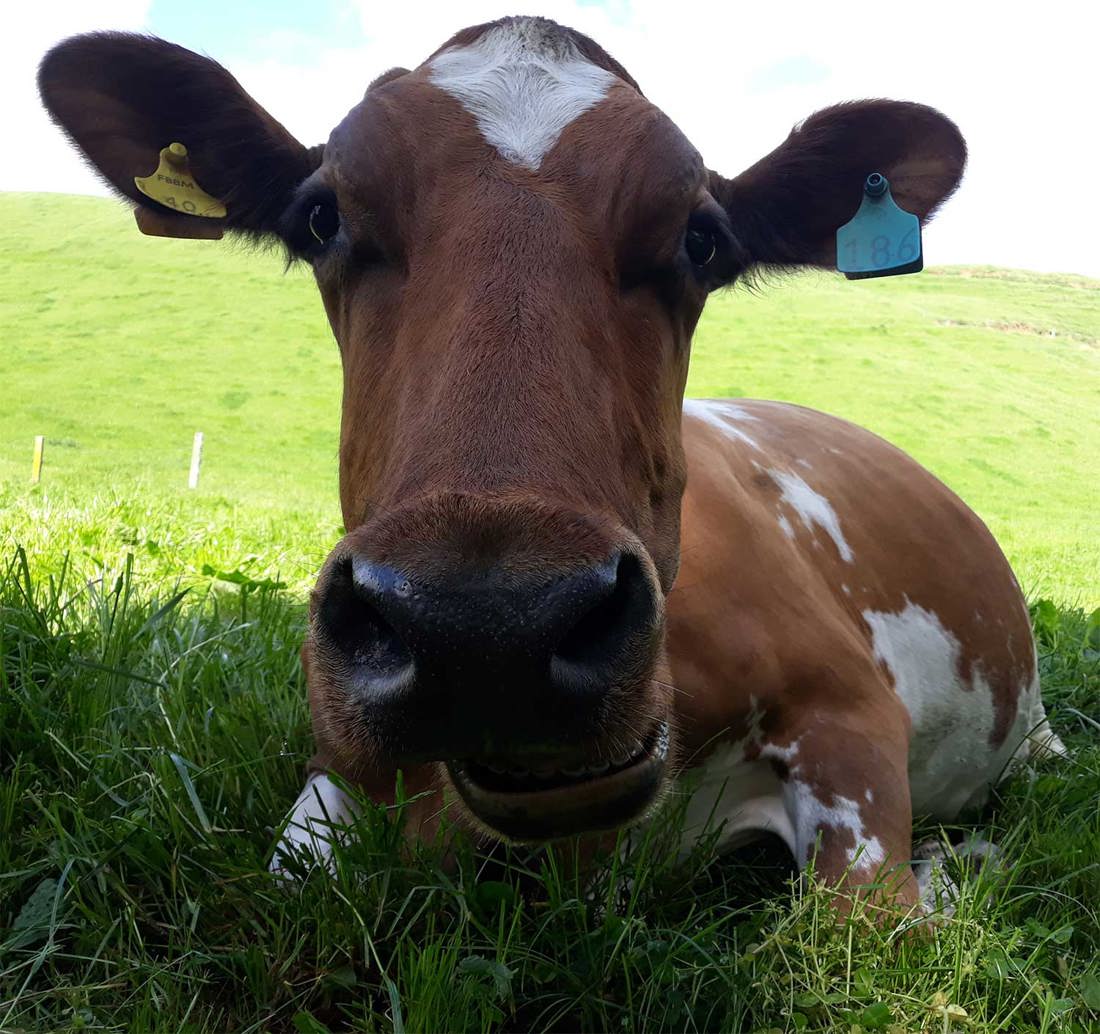

Animal welfare was traditionally viewed through the “Five Freedoms ”, established in 1965, which focused on preventing negative experiences such as hunger, thirst, and discomfort. In 2015, the Five Domains Model was developed at Massey University. It is now an internationally recognised framework to understand welfare across all species, including zoo animals, livestock, and pets, by considering both positive and negative experiences.
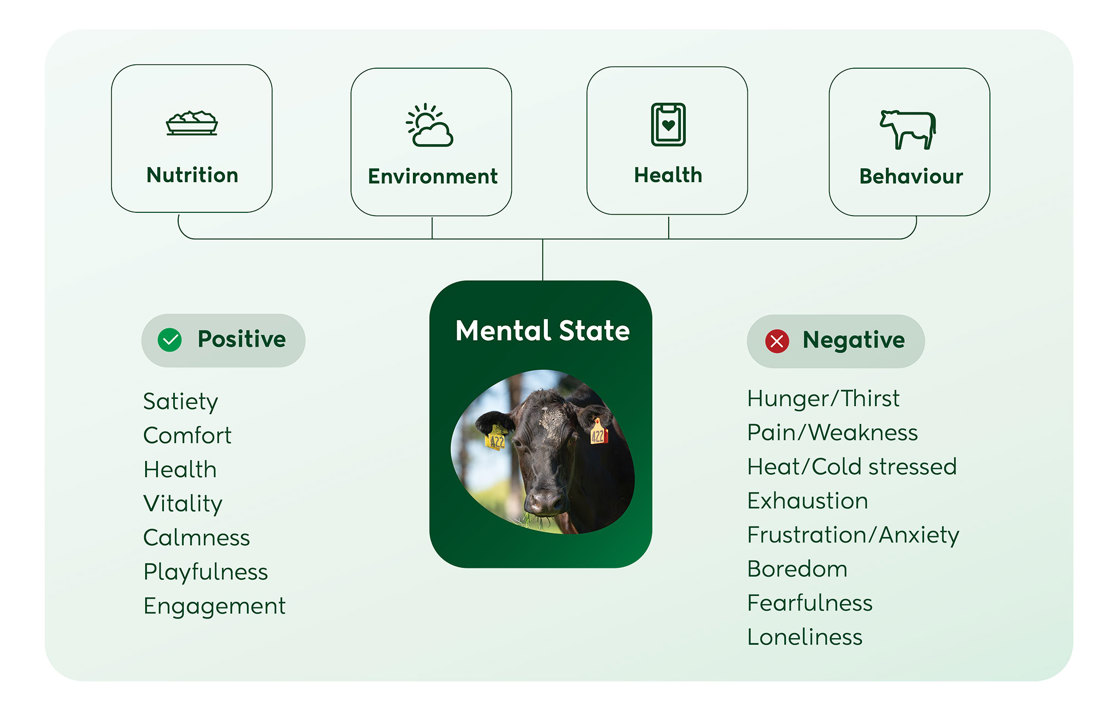
Environmental enrichment provides opportunities for animals to be challenged and interested by their surroundings, promoting both physical and mental wellbeing. You can provide environmental enrichment by:
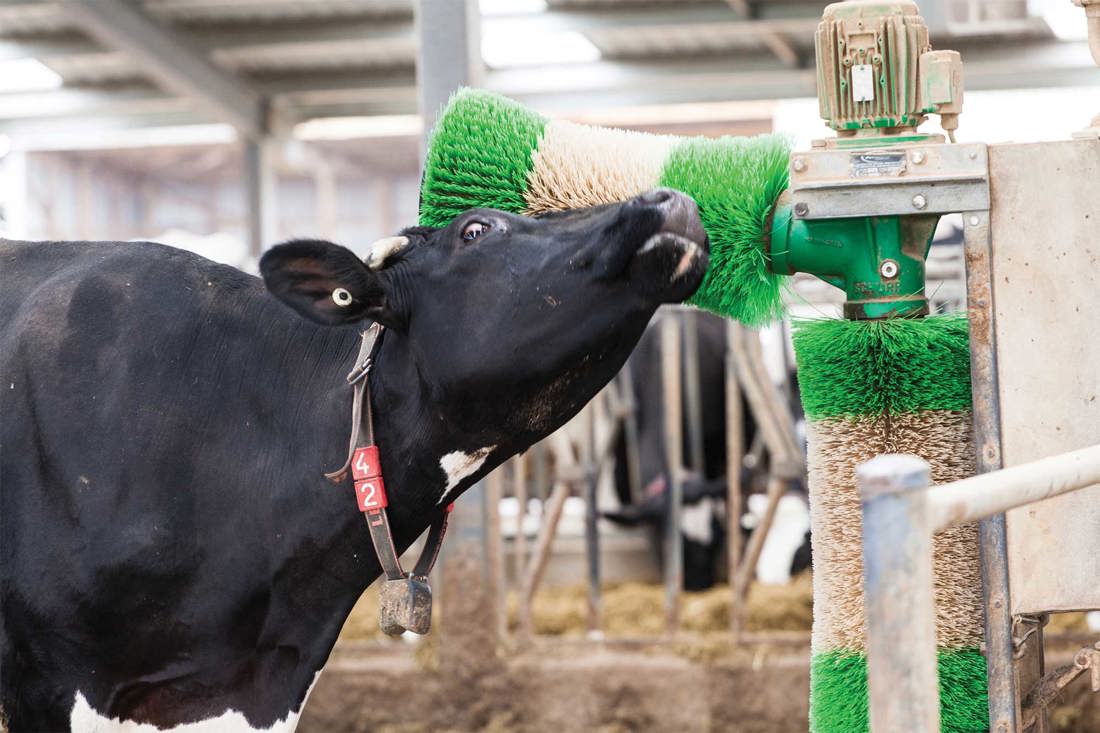
Behavioural expression is a cow’s ability to perform natural behaviours that are important to their physical and mental wellbeing. New Zealand’s pasture-based dairy farm systems already provide opportunities for expression of natural behaviours such as:
You can provide additional opportunities for expression of natural behaviours by:
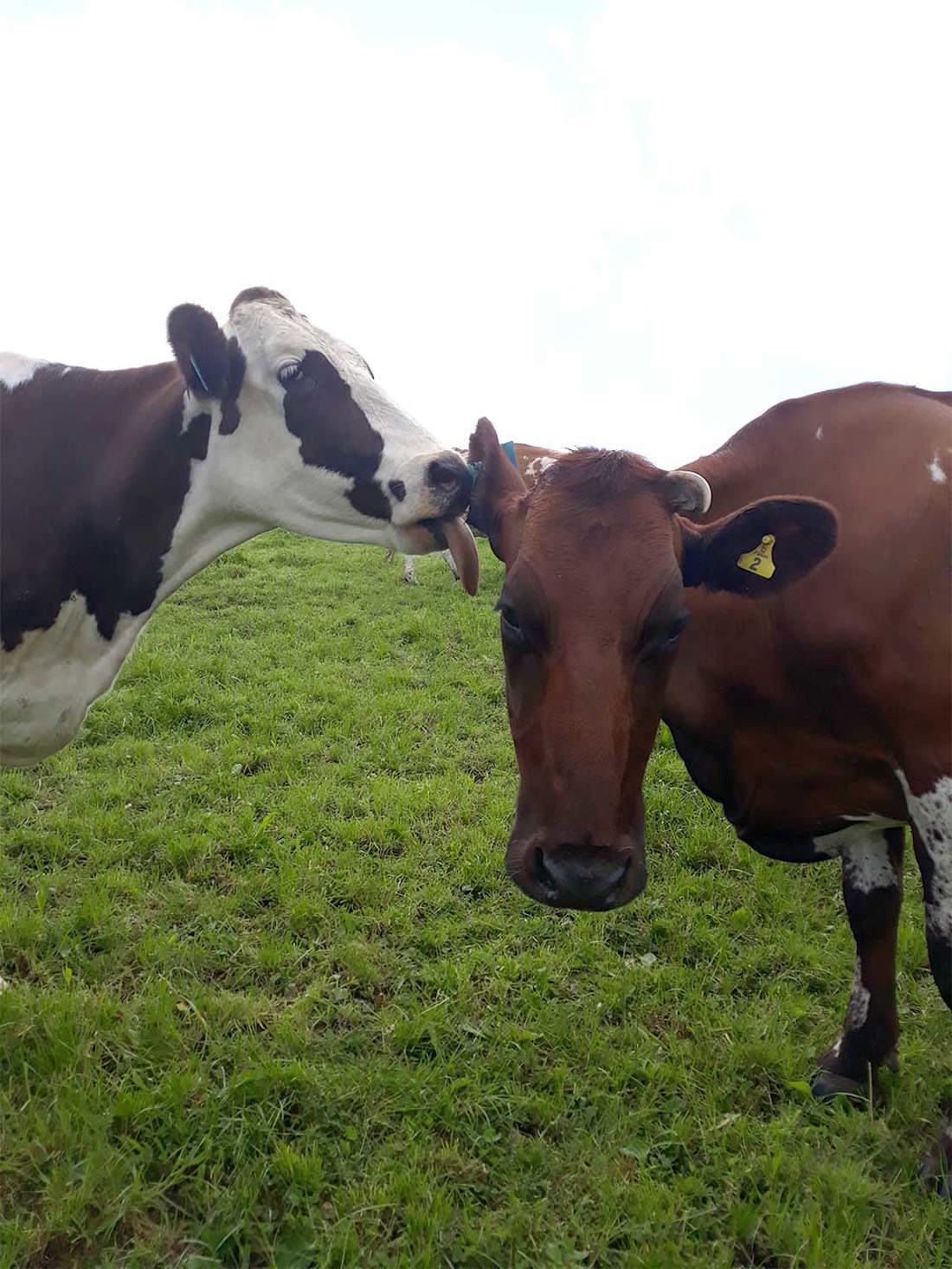
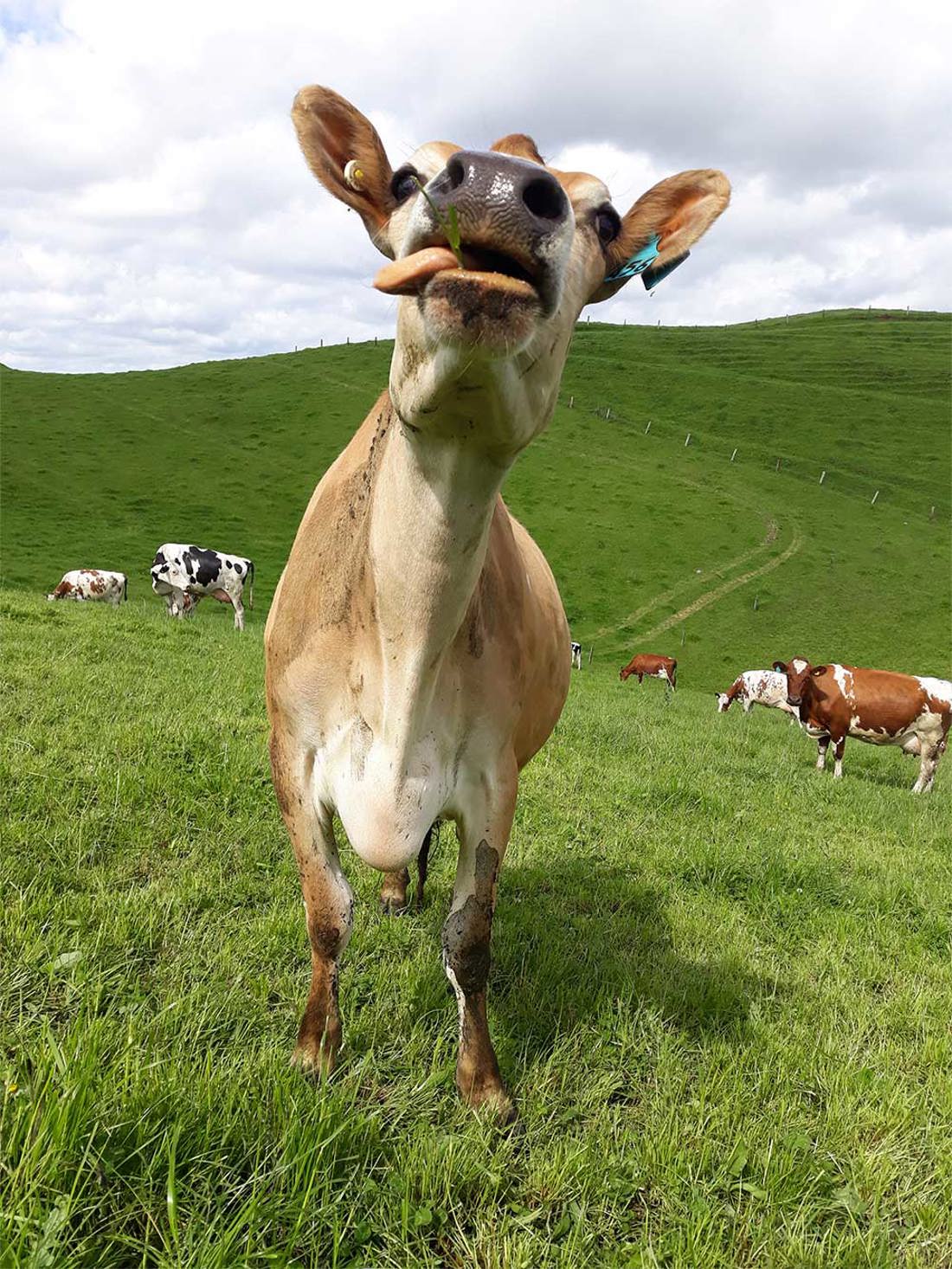
The relationship between farmers and their cows is central to dairy wellbeing. Daily interactions shape how cows perceive and respond to humans, directly impacting their stress levels, health, and productivity. Good stockmanship and skilful empathetic handling of livestock is possibly one of the most effective improvements to animal and human wellbeing you can make. Calm, confident handling saves time and is less stressful for both cows and people, particularly during milking and yarding.
Cows have excellent memories and remember how they are treated. Cows learn to associate people with positive or negative experiences. Skilled stock people understand cow behaviour and the importance of building trust, making handling easier and less stressful for both cows and people. This includes recognising flight zones and points of balance to move cattle calmly, using their natural following behaviour rather than forcing movement. Good stock people are patient, calm, and deliberate, giving cows time to process what's being asked of them. By noticing subtle behavioural cues that indicate stress, pain, or discomfort, good stock people can prevent problems before they escalate.
Look for opportunities on your farm to support positive welfare, while maintaining best practice to minimise negative experience through careful management, health prevention, and good animal care.
Now’s the perfect time to check in, plan, and set up for a strong season. We’ve pulled together smart tips and tools to help you stay ahead all winter long.
Whether you prefer to read, listen, or download handy guides, we’ve got you covered with trusted tools to support your journey every step of the way.
Put our proven strategies and seasonal tools to work. Boost production, support animal health and watch your profits hum.
Tools that are backed by science, shaped by farmers and made for this season.
That’s Summer Smarts.
Autumn Smarts brings together the research-backed tools that build resilience and boost performance.